Visitor Visa in France
Get help achieving the Visitor Visa in France with the help of our partners
Get help achieving the Visitor Visa in France with the help of our partners
A lawyer can provide valuable assistance and guidance throughout the process of obtaining a visitor visa in France. Here are some ways in which a lawyer can help:
Application Preparation: A lawyer can help you understand the specific requirements and documentation needed for your visitor visa application. They can guide you in gathering the necessary paperwork, such as proof of travel arrangements, accommodation details, financial documentation, and other supporting documents required by the French authorities.
Legal Advice: A lawyer can assess your individual circumstances and provide tailored advice regarding your eligibility for a visitor visa. They can inform you about any potential issues or challenges you may face during the application process and suggest strategies to address them.
Application Review: Before submitting your visa application, a lawyer can review it thoroughly to ensure accuracy and completeness. They can identify any potential errors or omissions that could lead to delays or visa denial and provide guidance on how to rectify them.
Communication and Representation: If necessary, a lawyer can act as your representative in communication with the French consulate or embassy. They can handle correspondence, address any inquiries or requests for additional information, and advocate on your behalf throughout the visa application process.
Overcoming Challenges: If your visa application is denied or faces complications, a lawyer can assist in appealing the decision or finding alternative solutions. They can help navigate the complex procedures and legal requirements involved in such situations.
Legal Compliance: A lawyer can ensure that your visa application and related activities comply with all relevant laws, regulations, and immigration policies. They can help you understand the legal obligations and restrictions associated with your visitor visa, such as limitations on employment or duration of stay.
Changing Visa Status: If you wish to extend your stay or transition to a different type of visa while in France, a lawyer can advise you on the options available, assist with the application process, and ensure that you are in compliance with the necessary legal requirements.
Having a lawyer by your side can provide peace of mind, increase your chances of a successful visa application, and help you navigate the complexities of the French immigration system. They can provide personalized advice based on your specific circumstances and offer support throughout the entire visa application process.
Don’t try to go through the Visitor Visa process on your own. Seek the help of an experienced corporate lawyer to increase your chances of success and make the process as smooth and stress-free as possible.
A visitor visa is a type of long-stay visa that allows you to stay more than 90 days in France.
You must apply in advance for a long-stay visa if your stay in France will last longer than 90 days. Your nationality does not free you from the requirements in this case.
The length of your long-stay visa must be between three months and a year, regardless of how long you intend to stay. You must submit an application for a residence permit at a prefecture if you wish to prolong your stay past the duration of the validity of your visa.
The Long-Stay Visitor Visa in France, also known as the “Visa de long séjour visiteur,” is designed for individuals who intend to stay in France for an extended period for tourism, visiting family or friends, or exploring the country’s culture and lifestyle. Here are some insights into the Long-Stay Visitor Visa:
Duration: The Long-Stay Visitor Visa allows you to stay in France for more than 90 days, typically up to one year. The specific duration granted may vary based on individual circumstances and the decision of the French authorities.
Purpose: This visa is suitable for those who want to experience an extended stay in France without engaging in any professional or educational activities. It is meant for non-work-related purposes, such as tourism, family visits, or sabbatical breaks.
Requirements: The requirements for a Long-Stay Visitor Visa can vary based on factors such as your nationality, personal situation, and the duration of your intended stay. Generally, you will need to provide a valid passport, completed visa application form, proof of travel insurance, proof of accommodation in France, financial documents showing your ability to support yourself during the stay, and a detailed itinerary or purpose of the visit.
Extension: If you wish to stay in France beyond the initial visa period, you may be able to apply for an extension while you are in the country. It is advisable to start the extension process well in advance of the visa expiration date to ensure continuity of your stay.
Limitations: It’s important to note that the Long-Stay Visitor Visa does not grant you the right to work or engage in any professional activities in France. If you plan to work, study, or undertake any other specific activities, you would need to apply for the relevant visa or permit, like the long-stay work visa.
Residence Permit: In some cases, individuals who hold a Long-Stay Visitor Visa may need to apply for a residence permit (Titre de Séjour) once they arrive in France. The residence permit provides legal authorization to stay in the country for the approved duration and may require additional documentation and application processes.
In France, there are different types of long-stay visitor visas available depending on the purpose of your visit. Here are some common types of long-stay visitor visas in France:
Long-Stay Visitor Visa (Visa de long séjour visiteur): This visa is for individuals planning to stay in France for an extended period for purposes such as tourism, visiting family or friends, or exploring the country’s culture and lifestyle.
Visitor Visa for Medical Treatment (Visa de long séjour pour soins): This visa is for individuals seeking medical treatment or undergoing medical procedures in France. It requires documentation from a medical professional in France stating the need for treatment in the country.
Visitor Visa for Artists and Performers (Visa de long séjour pour artiste ou professionnel du spectacle): This visa is designed for artists, performers, and professionals in the entertainment industry who plan to stay in France for artistic or professional activities, such as exhibitions, performances, or collaborations.
Visitor Visa for Researchers (Visa de long séjour pour chercheur): This visa is for researchers, scholars, and scientists who have been invited by a French research institution or organization to conduct research or participate in academic projects in France.
Visitor Visa for Religious Activities (Visa de long séjour pour activité religieuse): This visa is for individuals who are planning to engage in religious activities or missions in France, such as working in a religious organization or participating in religious events.
It’s important to note that each type of long-stay visitor visa may have specific requirements and documentation criteria that need to be fulfilled. The visa application process and required documents may vary depending on your nationality and the purpose of your visit.
A long-stay visitor visa in France is available for individuals who meet the eligibility criteria and intend to stay in the country for an extended period for various non-work-related purposes. Here are some general guidelines on who can apply for a long-stay visitor visa in France:
Tourists: Individuals who wish to visit France for an extended period for tourism purposes, to explore the country’s culture, heritage, and attractions.
Family Visitors: People who plan to visit their family members residing in France, such as spouses, children, parents, or other relatives.
Sabbatical Break: Individuals taking a sabbatical or extended break from work or studies and wish to spend an extended period in France.
Language or Cultural Study: Individuals who want to enroll in a language course, cultural program, or similar educational activities in France.
Retirees: Individuals who intend to spend their retirement period in France and wish to enjoy the country’s lifestyle, climate, and amenities.
Medical Treatment: Individuals seeking medical treatment or specialized healthcare in France.
Artists and Performers: Professionals in the arts and entertainment industry who plan to engage in artistic or professional activities, such as exhibitions, performances, or collaborations.
Researchers and Scholars: Individuals invited by a French research institution or organization to conduct research or participate in academic projects in France.
Religious Workers: Individuals planning to engage in religious activities or missions in France, such as working in a religious organization or participating in religious events.
The process of obtaining a long-stay visitor visa in France involves several steps. While the exact requirements and procedures may vary depending on your nationality and the French embassy or consulate in your home country, here is a general overview of the process:
Determine the Visa Type: Identify the specific long-stay visitor visa category that corresponds to the purpose of your visit, such as tourism, family visit, medical treatment, or cultural activities.
Gather Required Documents: Collect the necessary documentation for your visa application. This typically includes a completed visa application form, a valid passport, proof of travel insurance, proof of accommodation in France, financial documents demonstrating your ability to support yourself during your stay, and any additional documents specific to your visa category (e.g., invitation letter, medical certificates, etc.).
Schedule an Appointment: Contact the French embassy or consulate in your home country to schedule an appointment for submitting your visa application. Be mindful of any specific requirements regarding appointment scheduling and availability.
Attend the Visa Interview: On the scheduled date, attend the visa interview at the French embassy or consulate. During the interview, be prepared to provide information about the purpose of your visit, your planned itinerary, and any other details related to your stay in France.
Pay the Visa Fee: Pay the required visa fee at the embassy or consulate. The fee amount may vary based on your nationality and the type of long-stay visa you are applying for.
Visa Processing: After submitting your application and supporting documents, the embassy or consulate will review your application and make a decision. The processing time can vary, so it is recommended to apply well in advance of your intended travel dates.
Collect Your Visa: Once your visa is approved, you will need to collect your passport with the visa affixed to it from the embassy or consulate. Follow the instructions provided by the embassy or consulate for the passport collection process.
Navigating the process of obtaining a long-stay visitor visa in France can be complex and time-consuming. To ensure a smooth and successful application, it is highly advisable to seek the guidance and expertise of an experienced lawyer. Contact us now to make sure you meet all the requirements to apply for the visa with a free consultation of your case.
Ready to navigate the complexities of the long-stay visitor visa in France? Contact our partners, experienced immigration lawyers, to receive personalized guidance, expert advice, and professional assistance with your visa application. Let us help make your extended stay in France a seamless and successful experience. Reach out to us now to start the process!
France is a country that is rich in culture, history, and stunning landscapes. Obtaining a Visitor Visa provides an opportunity to immerse oneself in the French way of life, experience world-renowned cuisine, learn a new language, and explore the rest of Europe without restrictions.
Additionally, France offers affordable living, high-quality healthcare, and education opportunities. Whether you are looking for a new adventure, retirement destination, or business opportunities, France has something to offer. So why not take the first step in living la dolce vita by obtaining a Visitor Visa in France?
Experience the rich French culture.
Explore Europe without visa restrictions.
France has a stable and growing economy
Taste world-renowned French food and wine.
Cost of living is lower compared to other European countries.
Access to high-quality healthcare facilities and services.
France has a highly skilled and multilingual workforce
a variety of financing options available for businesses of all sizes
No, a long-stay visitor visa does not grant you the right to work in France. It is strictly for non-work-related purposes. If you wish to work in France, you would need to apply for a work visa or permit.
Depending on your circumstances and the reason for your stay, it may be possible to extend your long-stay visitor visa while you are in France. However, extensions are subject to specific conditions and must be applied for before your current visa expires.
Yes, with a long-stay visitor visa issued by France, you are generally allowed to travel to other Schengen countries for a maximum of 90 days within a 180-day period. However, it is advisable to check the specific visa conditions and entry requirements of the other Schengen countries you plan to visit.
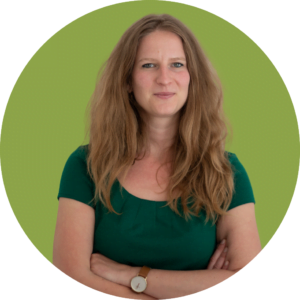
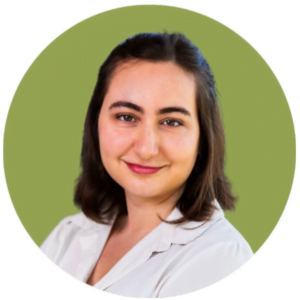
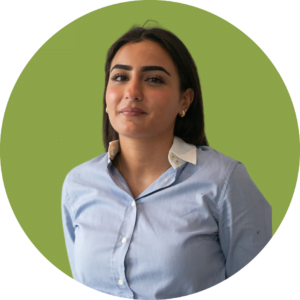
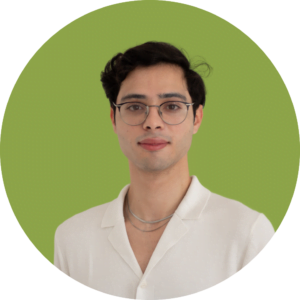
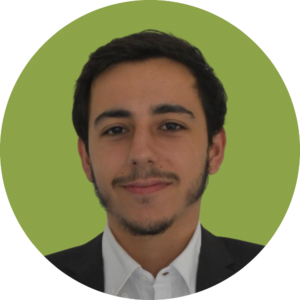


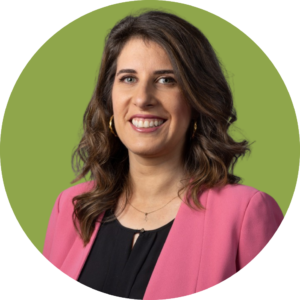

Born in Senegal to Belgian-Portuguese parents and having lived for several years in various countries, Eléonore quickly became passionate about Immigration legislation. She graduated from the University of la Sorbonne and the University of Florence and obtained a five-year dual degree in Italian and French Law. As an attorney, she chose to work in Immigration Law in order to have real action on the field and help people fulfill their projects. Deeply convinced that digital technologies can make law and legal services simpler and impact people’s lives in a positive way, Eléonore will always be looking for the most efficient way to meet your needs.
Victoire is born and raised French, despite family from all around the world.
She graduated her Masters degree in international law and human rights law,
and believes she did not fall into Immigration law by accident. She is passionate
about helping others transform their dream to move to France into a project,
either professional or familial. She loves her crazy Paris city and the French
countryside, discovering new cultures, and showing off good old France.
Speaking: French and English.
She was born and raised in France but is a dual national. From a young age she knew she wanted to become a lawyer. Nour studied private law in French university during my bachelor. Later she inroad in a Master Degree in which Nour studied International and European litigation law. She ended her master in Greece studying in an LLM of international Law. Growing up she was always facing various legal systems, procedure that immigrant go through in order to visit family, work, study. Nous is very comfortable talking and helping people legally or not in different language to make them feel helped efficiently. Speaking: English, French, Spanish, Italian, Arabic.
Born in Brazil, where I started my Law studies, changing to Law School in Portugal and got my degree from University of Porto in 2021. I got a Master’s in European Law in Paris, at the University Paris 12. I have been having an enriching experience during my traineeship at Lexidy, where I get to complete with practical skills the knowledge I have acquired during these many years of legal studies. What I like to do the most is reading and cooking. I am fluent in Portuguese, French and English, and I am currently learning German.
Born in Valencia, Spain, he started a Double Degree in French and Spanish Law between the Universitat de Valencia and the Université Toulouse 1 Capitole. Along with this degree formation, he specialized in European and International Law in for two years, completing it with a Master Thesis about the Evolution of the concept of States Boarders in the light of Internet. During my Master’s degree, Hector was able to discover Immigration law through the lens of European and French Law. Throughout the internship at Legal Service at the European Parliament, he learned the practical side of European and Public International Law from the lens of creation and conclusion of International Agreements. Finally, his experience at M&B Avocats helped to develop the profile as a French and Spanish Law Jurist, knowing the insights and particular traits of both legal systems. Speaks: English, Spanish, French.
Pauline Flaviano is half-french half-hongkongese, and lived in both places. Her European law studies also allowed her to live in Spain for a year. Her European studies focus on the European asylum and immigration policies. Having lived in different countries and speaking multiple languages, she joined the Paris immigration team for her end-of-studies internship. Speaks: French, English, Cantonese.
Eva is originally from El Salvador but has lived in France and Spain. She obtained a double degree in French and Spanish Law from the Université Toulouse Capitole I and Universidad Autónoma de Barcelona, specializing in International & European Law, reflecting her keen interest in the intersection of legal systems across borders. She has obtained her Master’s in Access to the Legal Profession and is registered at the Barcelona Bar Association (ICAB). Drawing from her diverse experiences in an international setting, Eva has cultivated a profound interest in international and immigration law. She speaks Spanish, French, English, and Portuguese and is currently learning Catalan. Eva’s extensive international exposure, coupled with her linguistic proficiency, positions her as a valuable asset for clients seeking comprehensive legal expertise in a global context.
Sandra is half-French and half-Lebanese. She is born and raised French and travels around the world to visit her family. Sandra has known since she was a teenager that she wanted to become a lawyer. Passionate about numbers, she naturally turned to tax and corporate law and graduated in these subjects from Assas University and INSEEC business school. Sandra has been practicing as a lawyer since December 2015. She loves assisting people and companies who come to France to facilitate their tax matters. She also assists entrepreneurs, shareholders and companies to set up or develop their business in France. Her approach is to provide personalised legal advice adapted to the client’s needs, because every project is unique. Speaks: French and English.
She was born in Bulgaria where she pursued her Bachelor’s degree in European Studies, majoring in law at Sofia University. Seeking to deepen her understanding of EU law and proficiency in French and English, she’s currently enrolled in a Master’s degree in European Law and Litigation from the University Paris-Panthéon-Assas in Paris, France. As an immigrant herself, Gergana empathises with the legal hurdles faced by individuals establishing themselves in a new country. Driven by her own experiences, she has joined the Immigration team at Lexidy Paris to assist fellow expatriates and to ease their transition into a new cultural and legal landscape. Speaks: English, French, Bulgarian, Russian.
French services are provided in the context of a collaboration between Lexidy, Ms. Eleonore Tavares and Ms. Yuliana Colorado, lawyers registered in France.
For us, Lexidy is a way of life and what excites us the most is to be able to deliver the happiness and satisfaction of a successful Company Formation Process. We want to help you achieve your goals and dreams, whether it’s residence in Italy or simply opening your company.